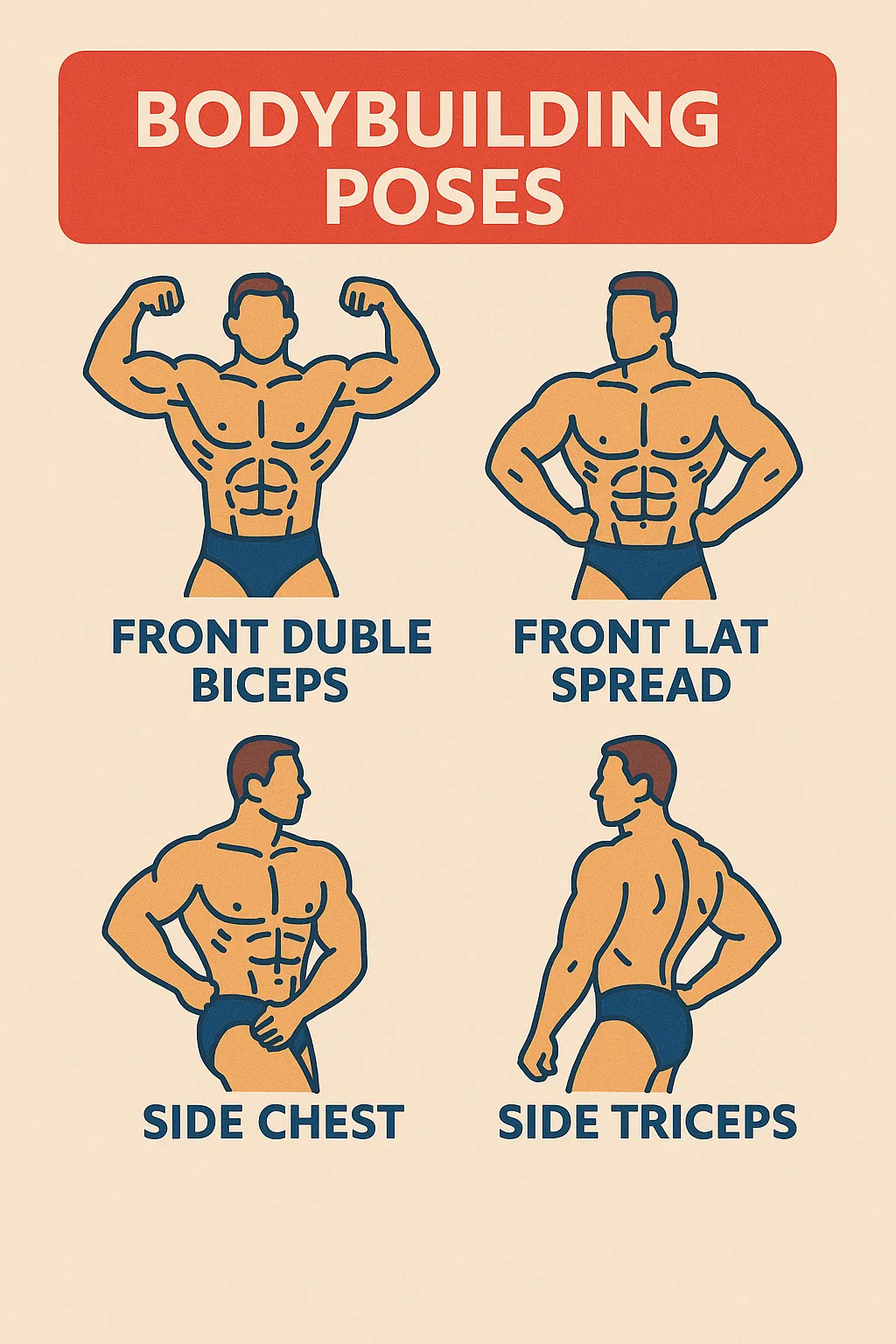Different supplements can help with building muscle when paired with resistance training and a healthy diet. These supplements include creatine and protein supplements, among others.

When you’re working out regularly, you likely want to be sure you’re getting the most out of it. Building muscle and strength is one of the biggest advantages of exercise. Having good muscle helps you perform at your best for both exercise and for daily life.
Key Requirements for Muscle Gain
Three main demands must be met for optimum muscle gain:
• Consuming more calories than you burn
• Taking in more protein than you deteriorates
• Having a workout routine that is challenging for your muscles
All of these demands can be met without using dietary supplements, but there are supplements available to help you meet them. The following article is about supplements that will help you gain more muscle with your exercise routine.
Research Gaps in Female Supplement Use
There is little research on women’s use of supplements to build muscle. The majority of studies in this article are on young to middle-aged male adults. More studies need to be conducted on females and other groups of people.
If you have any questions about muscle-building supplements, talk with a qualified health professional, such as a primary care provider or dietician, for individualised advice and counselling.
What is Creatine?
Creatine is a substance that your body produces naturally. It provides energy to your muscles and other tissues. Its consumption as a dietary supplement can increase muscle creatine content by up to 40%, Trusted Source more than normal.
Effects on Muscle Growth
Creatine affects muscle cells and the functioning of exercise, and causes muscle gain. In fact, a lot of research Trusted Source suggests that creatine increases muscle strength. This is good news if you’re trying to gain muscle. Greater strength allows you to perform more in the gym, which means more muscle mass gains over time.
Creatine can also increase water content in your muscle cells. This can cause your muscle cells to swell slightly and signal for muscle growth. This supplement can also increase levels of the hormones that lead to muscle growth, such as IGF-1. Also, some research Trusted Source suggests that creatine can decrease the breakdown of protein in your muscles.
Scientific Consensus
Overall, many researchers have looked at Trusted Source creatine supplements and exercise, and one thing is sure: Creatine can help you build muscle mass. Creatine also has an excellent safety record. If you’re looking for a supplement to help you gain muscle, start with creatine.
Creatine Supplementation in Women
Creatine’s effects are different in men and women. According to a 2021 review trusted Source, women have 70% to 80% less creatine stores than men. Scientists also note that women degrade creatine differently. Creatine stores may diminish during periods of hormone-related change, such as menstruation, pregnancy, and menopause.
Due to this, creatine supplementation may be especially important before, during, and after these estrogen-related periods. Scientists note creatine supplementation can increase strength, exercise performance, and muscle mass in women.
In combination with resistance training, creatine can also exert beneficial effects on bone density. In addition, creatine supplementation can also have beneficial effects on mood, cognition, and sleep. Researchers believe that women can adhere to the same dosing regimens recommended for men.
But it’s always best to speak with a doctor before starting any supplementation protocol. They will consider your health history in order to provide appropriate dosing and make sure there are no negative interactions with medications you are already on.
Summary
Creatine is probably the single best muscle-building supplement for both men and women. Many studies confirm it can help build muscle mass.
Protein Supplements
Importance of Protein
Protein consumption is absolutely vital to build muscle. In order to build muscle, you need to consume more protein than your body naturally degrades.
It is possible to obtain all the protein you require from protein-rich foods, but some people may find it difficult to do this. If this is you, then you should consider using a protein supplement.
Types of Protein Supplements
There are many protein supplements, but some of the most popular ones are whey, casein, and soy protein. Others utilise protein extracted from eggs, split peas, rice, and hemp seeds.
ResearchTrusted Source shows that adding supplemental protein leads to slightly more muscle gain in exercisers compared to adding extra carbohydrates. But the effects are probably greatest in people who aren’t getting enough protein in their diet.
Effect of Protein on Muscle Maintenance
A 2018 studyTrusted Source of adult men and women suggests that total protein intake (animal, fish, and egg protein) is associated with muscle building and muscle maintenance.
In women, however, the association between total protein intake and muscle mass was dependent on physical activity.
Many people wonder how much protein to eat daily. If you’re an active individual trying to gain muscle, 0.6 to 0.9 grams (g) of protein per pound (lb) of body weight, or 1.4 to 2.0 g per kilogram (kg)Trusted Source of body weight, may be best.
Summary
Taking in enough protein is vital to optimal muscle gain. With that said, if you’re getting enough protein in your diet, you don’t have to take a protein supplement.
Weight Gainers
Purpose and Use
Weight gainers are supplements designed to make it simple for you to consume more calories and protein. They’re usually taken by people who are having a difficult time gaining muscle, even though they’re consuming a high amount of calories and weight training.
Nutrient Composition
Though the calorie count of weight gainer supplements varies, it’s not uncommon for some to contain more than 1,000 calories per serving.
Most people presume that these calories come from protein since it contributes such a huge amount to muscle building. However, most of the calories come from carbohydrates.
There are 75 to 300 g of carbohydrates, 20 to 60 g of protein, and 0 to 15 g of fat per serving in these weight gainer supplements.
Effectiveness of Weight Gainers
While these supplements can help you consume more calories, there is nothing magical about weight gainer supplements.
A 2012 studyTrusted Source on physically inactive male and female adults found that drastically increasing more calories can increase lean mass like muscle, as long as you are taking in enough protein.
However, a 2016 studyTrusted Source on males who performed resistance training suggests that the intake of a weight gainer supplement may not be effective in increasing lean mass.
Generally speaking, weight gainers are only appropriate if you find it difficult to eat food and would rather drink a weight gainer shake instead of eating more food.
Summary
Weight gainers are supplements with high calories designed to get you to consume more calories and protein. However, they are only appropriate if you find it difficult to obtain enough calories from food.
Beta-Alanine
What is Beta-Alanine?
Beta-alanine is an amino acid that reduces fatigue and may improveTrusted Source exercise performance. Beta-alanine can also add muscle mass if you’re on an exercise program.
Supporting Research
Researchers in a 2011 studyTrusted Source found that taking 4 g of beta-alanine per day for 8 weeks increased lean body mass more than a placebo in male college wrestlers and football players.
A 2009 studyTrusted Source discovered that the inclusion of a beta-alanine supplement in a 6-week high-intensity interval training program increased lean body mass by around 1 lb (0.45 kg) more than a placebo in males.
Conflicting Evidence
However, a 2022 review of 20 studies concludes that beta-alanine supplementation is unlikely to improve body composition, regardless of the supplement dosage or whether it’s combined with resistance exercise.
Therefore, more research is justified to establish the possible ergogenic effects of supplementing with beta-alanine.
Summary
Beta-alanine is an amino acid that has the potential to improve exercise performance. There is some evidence to suggest that it may also increase muscle mass gains during exercise, but more research is needed.
Branched-Chain Amino Acids (BCAAs)
What Are BCAAs?
Branched-chain amino acids (BCAAs) consist of three amino acids: leucine, isoleucine, and valine. Most protein foods, especially animal sources such as meat, poultry, eggs, dairy products, and fish, contain them.
Role in Muscle Growth
BCAAs are very crucial for muscle growth and make up about 35% Trusted Source of the amino acids in your muscles.
Just about everyone obtains BCAAs from food daily, yet it’s also fairly common to supplement with BCAAs.
Conflicting Evidence
A small 2016 studyTrusted Source in resistance-trained male participants suggests BCAAs can increase muscle gain or reduce muscle loss compared to a placebo.
However, a larger 2021 study involving both male and female participants concluded that BCAAS may not spare lean body mass in people following a weight-loss diet.
It’s possible that BCAA supplements may be beneficial only if you are not getting enough high-quality protein in the diet.
BCAAs in Females
Although they may be beneficial when the diet is inadequate, more research is needed before BCAAs are recommended as a routine supplement for muscle gain.
A small 2020 studyTrusted Source in postmenopausal women found that 8 weeks of resistance training increased muscle mass and strength. However, adding BCAA supplements did not lead to any noticeable gains.
Summary
Branched-chain amino acids (BCAAs) are involved in muscle formation. They are found in a broad range of foods. Whether supplementation with them is helpful if you already consume enough protein is questionable.
Beta-Hydroxy Beta-Methylbutyrate (HMB)
What is HMB?
Beta-hydroxy beta-methylbutyrate (HMB) is a compound that is formed when your body breaks down the amino acid leucine.
Function and Benefits
HMB is responsible for some of the healing effects of protein and leucine supplements. It is possibly most critical for preventing the breakdown of muscle proteins.
While HMB is naturally produced by your body, supplementation with it allows for higher quantities and can provide beneficial effects on your muscles.
Evidence in Different Populations
According to a 2017 review Trusted Source of studies, research on untrained adults showed that taking 3 to 6 g of HMB per day can increase the lean body mass gains induced by weight training.
A 2018 review Trusted Source states, however, that the same HMB doses are probably not effective at increasing muscle mass in athletes or adults experienced in weight training.
This may also imply that HMB is most effective in those who are new to training or taking their training to a higher level.
Summary
HMB can help to add muscle mass in those who are initiating a weight training program but appears to be less effective in those who have had some training experience.
Other Supplements
Overview of Additional Supplements
Several other supplements claim to increase muscle mass. These include conjugated linoleic acid, testosterone boosters, glutamine, and carnitine.
However, the evidence is mixed:
• Conjugated linoleic acid (CLA): CLA is a category of omega-6 fatty acids with different actions in the body. A 2015 review Trusted Source of studies on CLA for muscle gain revealed conflicting outcomes, and it’s unclear whether it’s beneficial.
• Testosterone boosters: Testosterone-boosting supplements include D-aspartic acid, Tribulus terrestris, fenugreek, DHEA, and ashwagandha. It’s likely these substances benefit only people with low testosterone.
• Glutamine and carnitine: These probably aren’t effective for increasing muscle mass in young or middle-aged active individuals. But one small 2020 study Trusted Source suggests that carnitine may have some muscle-building effects in older individuals.
Summary
Many types of supplements claim to increase muscle mass, but there’s little evidence they help in healthy, active individuals.
Final Thoughts
Supplements cannot provide maximum muscle gains if your nutrition and exercise programs are lacking. To gain muscle, you need to take in enough calories and protein and exercise, preferably with weights.
Once your exercise and nutrition routines are in place, you can consider dietary supplements. Creatine and protein supplements are likely the most beneficial supplements for muscle gain, but other supplements are beneficial to some people.







